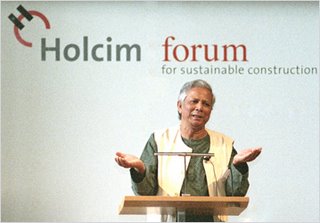[E]ven though the dynamics of globalization are affecting cities and regions, urban planners, mayors, and citizens of small towns are taking action to resist processes of standardization and homogenization. Slow Cities are dedicated to community economic development efforts that focus on the unique attributes of a place such as small businesses, locally owned restaurants, farmers markets, and socially responsible enterprises.I see this in-line with the rationale behind "smart growth":
...
Slow Cities want to be at the forefront of cutting-edge urban planning ideas, technology and innovation. They are not against locating a McDonald's, but rather hope that through their efforts the citizens will become educated consumers who are aware of the local choices and option for getting fresh, healthly and tasty meals. Slow Cities want to be eventful places where local traditions are celebrated and mixed with cosmopolitan influences.
Smart growth tries to take into consideration the total long-term economic costs of development decisions, rather than merely an aggregation of the short term profits that can be made by improving each individual parcel of land.As in: sure, (economic) development is important, but what about preserving some "good life" while we're pursuing it, for us and for our children?
 technorati tags: cities, development, growth, slow-cities
technorati tags: cities, development, growth, slow-cities



